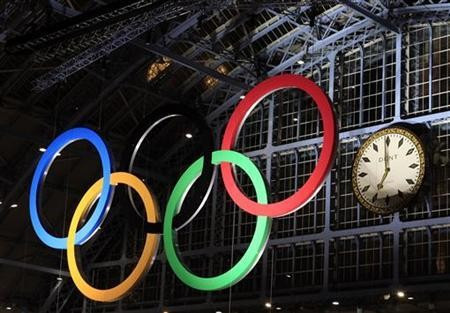London 2012 Olympics Present Huge Opportunity for Cybercriminals
From hacking and cybersquatting to phishing attacks and unsecured Wi-Fi networks, the 2012 Olympics is a big target for cybercriminals according to one security expert.

Earlier in the week, the head of the UK's security service, Jonathan Evans, warned it was impossible to guarantee the safety of the London 2012 Olympics and that it was an "an attractive target" for terrorists.
While the MI5 director-general was speaking about "would-be jihadists" the Games are also a target for another type of criminal, the cybercriminal.
Speaking to IBTimes UK, security expert with Kaspersky Lab, David Emm, believes there are a wide range of avenues open to cybercriminals to target the London 2012 Olympic Games.
Cybercrime has grown exponentially in the past few years, with Kaspersky announcing just yesterday at its annual Security Summit that its Labs detect 125,000 unique pieces of malware each day.
While most cybercriminals will be seeking to gain financially from their activities, there is also a cadre of criminals out there simply looking to make a point:
"Like any well-known organisation, there's the potential danger that some people might try to hack web sites associated with the Olympics - not necessarily for financial gain, but as part of a 'hacktivist' campaign, i.e. as a form of protest.
"Or they may try to launch a DDoS [Distributed Denial of Service] attack - flooding the site(s) with traffic to prevent its normal operation," Emm added.
Anonymous
With Anonymous, and its offshoots like LulzSec, very much in the news right now, Olympic security officials will need to be wary of all attacks of this kind.
Turning to criminals seeking to gain financially from the Games, one of the main ways in which this can be done is cybersquatting.
Cybersquatting is where someone unconnected with an event registers a domain name that is obviously associated in people's minds with a well-known event.
"This may mean 'getting in first' and registering a domain before the organisers of the event have done so. Or it may mean registering a name that is very close to that created by the organisers, for example 'www.2012london.com', in order to drive traffic to the site run by the cyber-squatters at the expense of the legitimate websites."
And cybersquatting leads to another type of cybercrime, phishing attacks. Visitors to websites which look like the real deal, may be targeted with bogus ticket sales or asked to enter personal information including email addresses and bank details.
Emm says the methods of getting people to visit these bogus sites have also evolved:
"Phishers don't just use e-mail to drive people to such sites. These days, cybercriminals are just as likely to use instant messaging or messages in social networks. Huge numbers of people now use social networks, so we're likely to see more of this as the Games approach."
Open Wi-Fi networks
With the world becoming increasingly connected and 'always online', people visiting London for the Olympics will be looking to connect to Wi-Fi networks on their smartphones, tablets, and laptops whenever possible. Indeded Virgin Meida has just begun rolling out free Wi-Fi on the Underground network across London ahead of the Games.
This however can cause problems is you are connecting to an open, unsecured Wi-Fi network. If you use an unknown, untrusted Wi-Fi network, it's possible for cybercriminals to intercept any data you transmit.
Emm warns that if you're using a laptop or tablet, you should ensure you have a secure connection by "always using 'https'; and use a unique, complex password for every online account, for example one that mixes letters, numbers and symbols and is more than eight characters."
Smartphone users need to be more aware, according to Emm: " If you're using a smartphone, don't use an untrusted Wi-Fi network for any online transaction where you need to key-in confidential data including banking, social networking and shopping."
© Copyright IBTimes 2025. All rights reserved.






















